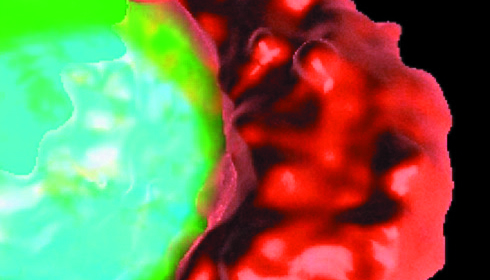
Study Reveals Racial, Socioeconomic Barriers to Cancer Treatments
A new study conducted by UT Southwestern Medical Center highlights significant disparities in the use of FDA-approved immunotherapies for patients with advanced kidney and bladder cancers, revealing deep inequities in access to these lifesaving treatments. The research, published in Urologic Oncology: Seminars and Original Investigations, found that race, socioeconomic status, and the type of healthcare facility play pivotal roles in determining whether patients receive these advanced therapies.
Led by Dr. Solomon Woldu, Associate Professor of Urology and a member of the Harold C. Simmons Comprehensive Cancer Center at UT Southwestern, the study analyzed data from the National Cancer Database. It focused on two types of cancer: stage 4 clear cell renal cell carcinoma (ccRCC) and urothelial carcinoma of the bladder (UC), both of which have seen promising treatment outcomes with immunotherapy. Despite the overall increase in the use of these therapies between 2015 and 2020, the study found persistent disparities in their administration.
Dr Woldu noted the critical importance of ensuring access to innovative treatments for all patients, emphasizing the widening gap in healthcare equity. “Our study highlights critical gaps in health care equity when it comes to treatments that have been shown effective in prolonging survival,” he said.
The study found that Black and Hispanic patients with advanced kidney cancer (ccRCC) were about 25% less likely to receive immunotherapy compared to other racial groups. A similar trend was observed for patients with lower income and education levels, underscoring the systemic barriers that limit access to advanced medical care. While health insurance improves access to treatment, the research revealed that even insured patients face challenges in affording expensive therapies, further complicating the issue of equitable care.
The study also noted that patients treated at nonacademic facilities were less likely to receive immunotherapies compared to those treated at academic medical centres like UT Southwestern. This gap points to the advantages of receiving care at specialized, research-driven institutions that prioritize access to cutting-edge treatments.
These findings build on a growing body of evidence documenting widespread disparities in medical care for various cancers in the U.S. The study underscores the need for healthcare providers to spend more time educating patients from underserved communities about the benefits of novel therapies. It also highlights the importance of policy changes aimed at addressing these inequities.
“Our mission at UT Southwestern is to provide cutting-edge care to all of our patients, and I believe we do so,” Dr Woldu stated, noting that the study marks a critical step in ensuring that advanced cancer treatments are accessible to all patients, regardless of race, socioeconomic background, or location.
The study’s authors call for healthcare policies that promote equitable access to lifesaving treatments and emphasize the importance of comprehensive care, particularly at nonacademic institutions. They advocate for a more inclusive healthcare system where innovative cancer therapies are accessible to all, not just those with the financial means or geographic proximity to major medical centres.